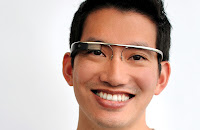The following is also published in The Vermilion Standard
I have never personally seen Confederation Bridge but I hear it is something to behold. Spanning thirteen-kilometers, the bridge drapes the Abegweit Passage of the Northumberland Strait, connecting Prince Edward Island with the mainland (New Brunswick). It is an amazing feat of engineering and currently holds the Guinness World Record for the longest bridge over ice (winter).
In many ways, it is a perfect metaphor for social media and its ability to connect people like never before. For the first time in history, people have the ability to connect instantly with multiple people, in multiple places, across multiple devices and in multiple languages (using translation technology). In this way, social media is a gift to humanity and a bridge that has the potential to bring people together in unprecedented ways.
Although our hyper-connected world has given us the ability to connect with more people faster and further than ever before, paradoxically, people have never felt more alone. It is a phenomenon Sherry Turkle terms as, “Alone Together.”
In the midst of this unprecedented hyper-connected world, people are increasingly feeling isolated and alone. In many ways, social media has given us the gift of a bridge but we haven’t learned to cross it into the deep and meaningful relationships it has the potential to help facilitate. Just as a bridge is not the end but the means to the end, social media is a means to relationship rather than the relationship you need to have.
To put it another way, too many people have a relationship with social media rather than utilizing social media as a means to have increasingly meaningful relationships with others. Building on the bridge metaphor, we have gotten on the bridge and enjoyed the view but few of us have learned to cross it and experience the wonders on the other side.
We are challenged to then use social media as a bridge to friendship not the destination.
Consider this wisdom given in the Bible about friendship: “A man of many companions may come to ruin, but there is a friend who sticks closer than a brother.” Proverbs 18:24, ESV
So many of us are “friends” with more people than we were before social media but we are still very alone. We have not experienced the gift of true friendship with others that social media has promised to provide. Therefore, my challenge for us is to use social media as the bridge it is destined to be rather than a destination of desertion. Let us use it to cross barriers and experience the deep community and friendships we were created for.
We were created to live on the other side of the bridge – in rich community – but too many of us are lost on it, unaware of what is available on the other side.







